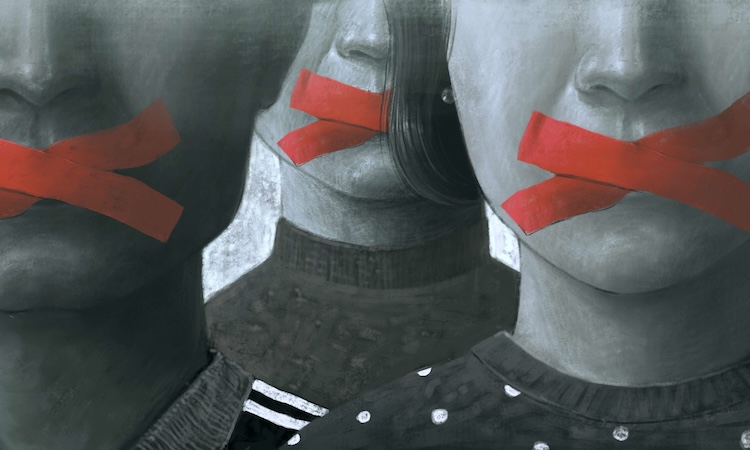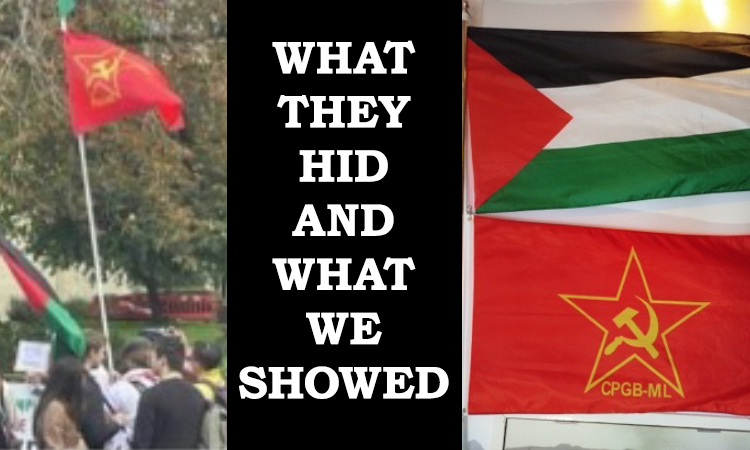In yet another display of startling (but hardly surprising) arrogance, the British government has pushed through a ‘legacy’ bill on northern Ireland designed to limit criminal investigations and legal proceedings against perpetrators of crimes during the Irish liberation war of 1968-98.
The movement of the bill through the Commons began on 17 May at the unilateral behest of the Tory party. Since then, it has managed to unite in opposition every party in the north of Ireland, the Irish government, academic groups and law societies, NGOs, and even the toothless Labour party.
The bill removes access to independent investigations for victims and survivors of British state war crimes in the north of Ireland, and puts the power to grant amnesty for such crimes directly into the hands of the British government, in the person of the secretary of state for northern Ireland.
There have been angry protests across the north in response, as victims and families of the bereaved make clear their opposition to this attempted whitewashing of British imperialism in Ireland – a ‘legacy’ that includes war crimes and collusion with loyalist paramilitaries in arms dealing and murder.
A one-sided bill
The bill gives specific powers to the British state allowing it to intervene in the justice system in the case of crimes committed during what is euphemistically referred to as ‘the Troubles’.
The chief commissioner of the so-called ‘independent’ body that will review cases – the Independent Commission for Reconciliation and Information Recovery (ICRIR) – will be appointed by the secretary of state. The secretary of state will also have the power to withhold information from reports, and control the information that ends up in them.
What has been pushed through by Brandon Lewis is therefore merely a repackaging of the blanket amnesty originally promised by Boris Johnson in 2019 – to righteous uproar then, too, amongst family groups and every political party except the Tories. That original bill had promised blanket amnesties; the only difference now is that the power to grant these has been given implicitly (rather than explicitly) to the secretary of state.
On top of all this, it is an explicitly one-sided bill that denies the right to immunity to those convicted by the British state of terrorist offences – ruling out anyone, for example, convicted of membership of the IRA – whilst conveniently enabling immunity for members of the security forces, who will, of course, have no such convictions. (Clause 20(1), p18)
All this makes a mockery of the government’s pretensions to be ‘upholding human rights’, which require that investigations into deaths and serious injuries be independent. It is therefore no wonder that campaign group Relatives for Justice has called the bill “an unprecedented political overreach by a western government into the criminal justice system, locking down the courts and administration of justice”.
Convenient timing
This should be no surprise, however, coming as it does in the wake of the Bloody Sunday inquiry, in which £195m was spent to reach the verdict that the actions of the Parachute Regiment were “unjustifiable” and that its members had “lost control”. (Saville rules Bloody Sunday killings were ‘unjustifiable’ by Steven Carroll, Irish Times, 15 June 2010)
Likewise, the verdict of the Ballymurphy inquest, which found that all ten victims – who had been described by British army as “republican gunmen and women” – were entirely innocent, and that the British army’s actions were unjustified and in breach of the European Court of Human Rights.
Clearly, the British state is seeking to avoid a repeat of such embarrassing fiascos by explicitly closing down the potential for new inquests.
Before this, in the absence of such convenient legislation, the state’s response to investigations like the Bloody Sunday inquiry has been to engage in what police intelligence themselves were found to call a ‘slow waltz’ – what the brother of one of the victims has called ‘amnesty by attrition’.
This deliberate strategy, uncovered during the investigation into the Loughinisland massacre at the Heights bar in 1994, has been described by a team of experts from Queen’s University Belfast and the Committee for the Administration of Justice:
“In the Police Ombudsman report into the murders at Loughinisland, the then Ombudsman Dr Michael Maguire refers to police intelligence documents being marked as ‘slow waltz’, which connotes a deliberate strategy of delaying access to such materials including to other investigating officers.
“The ‘slow waltz’ process is not limited to intelligence files. The experience of those engaged in these judicial processes is one that is beleaguered with obfuscation and delay. High court legacy cases are regularly challenged by defendants such as the PSNI, MoD and NIO as a default position.” (p60, our emphasis)
In the case of Bloody Sunday, this strategy of prevarication has led to the north’s ineffective Public Prosecution Service being thrown into disarray by separate court rulings over the admissibility of evidence and vacillating over the prosecution of so-called ‘Soldier F’ for the war crimes committed in Derry in January 1972.
The passage of this present bill will remove the need for state agencies to engage in such time-consuming behaviour in future.
A broader anti-democratic agenda
None of this can be divorced from the Tory party’s general disregard for – and dismantling of – democracy, both in the north of Ireland and across Britain. British imperialism has found itself in a sticky situation at home and abroad, and it is in this context – a position of weakness – that the Tories’ arrogant unilateralism must be seen.
The ongoing crisis of capitalism that presents itself now as the ‘cost of living crisis’ – and the organised response that has already seen the RMT out on pickets and will likely see others follow suit before the summer is out – is forcing an increasingly authoritarian response from the British state.
In Britain, we have seen a drastic erosion of civil liberties at exactly the same time as an unprecedented expansion of state power: the CHIS bill gives law enforcement the right to break the law in any way police officers see fit, whilst the PCSC bill takes away our right to complain about it.
Regarding Ireland, the government has pushed through a bill that will whitewash murders committed by paratroopers, ‘security forces’ and paid state informants, while the wounds caused by those deeds are still very much fresh. The same bill also indicates our rulers’ intention to produce an ‘official’ history of the Irish liberation struggle. Only last year, their bare-faced lies over the Brexit northern Ireland protocol lit the touch paper for loyalist riots across the province.
This growing disregard for even the pretence of democratic process is the unsurprising response to a changing reality: a combination of Brexit, demographic change in the north, and the growth of Sinn Féin into the largest party on the island is underscoring the likelihood of – and the need for – reunification, sooner rather than later.
For, whilst there’s been a lot of talk comparing the bill – favourably by its proponents, unfavourably by its detractors – to the Truth and Reconciliation Commission that took place in South Africa, it’s currently a moot point.
For all its flaws, the very foundation of the TRC in South Africa was the abolition of apartheid, the stunning victory of the ANC in the 1994 elections, and the authority thereby given to the commission by Nelson Mandela.
Never mind the brass neck that would compare this particular bill – vested as it is in the inestimable authority of Brandon Lewis – to the sincerity of the process that took place in South Africa. So long as Ireland remains partitioned and the northern six counties remain tied to the British state, any talk of truth and reconciliation in the north is whistling in the wind.















